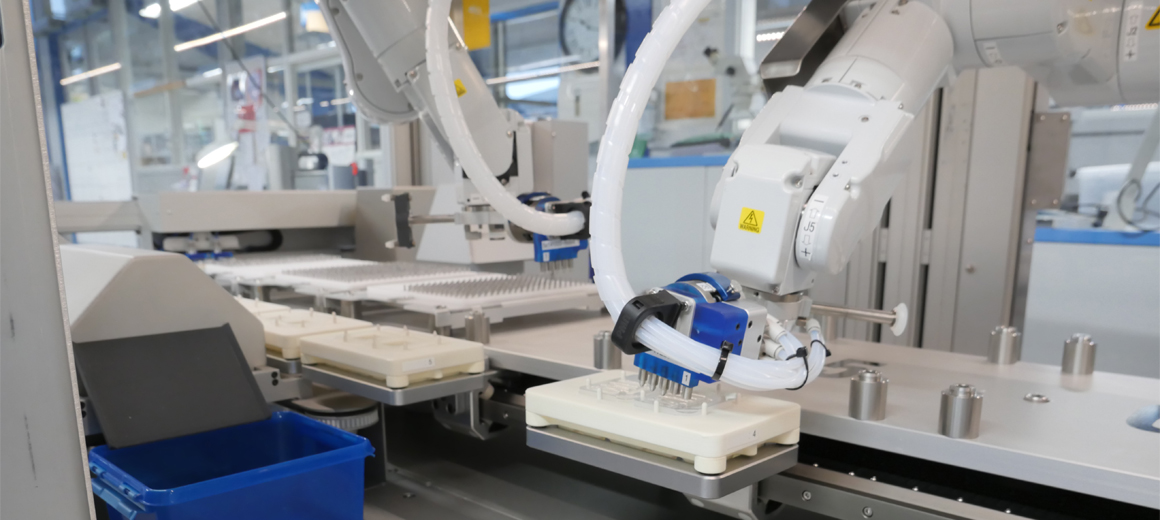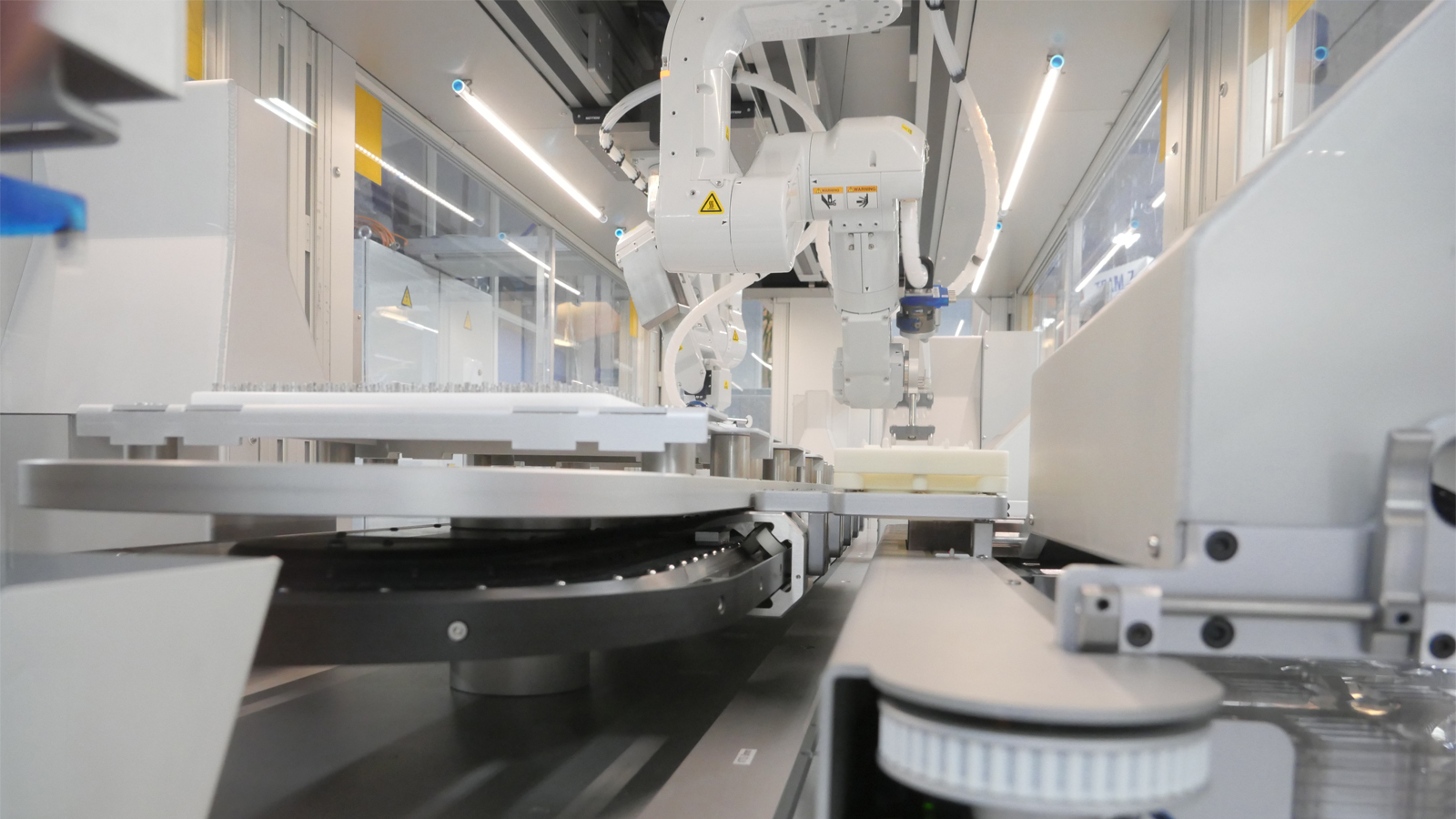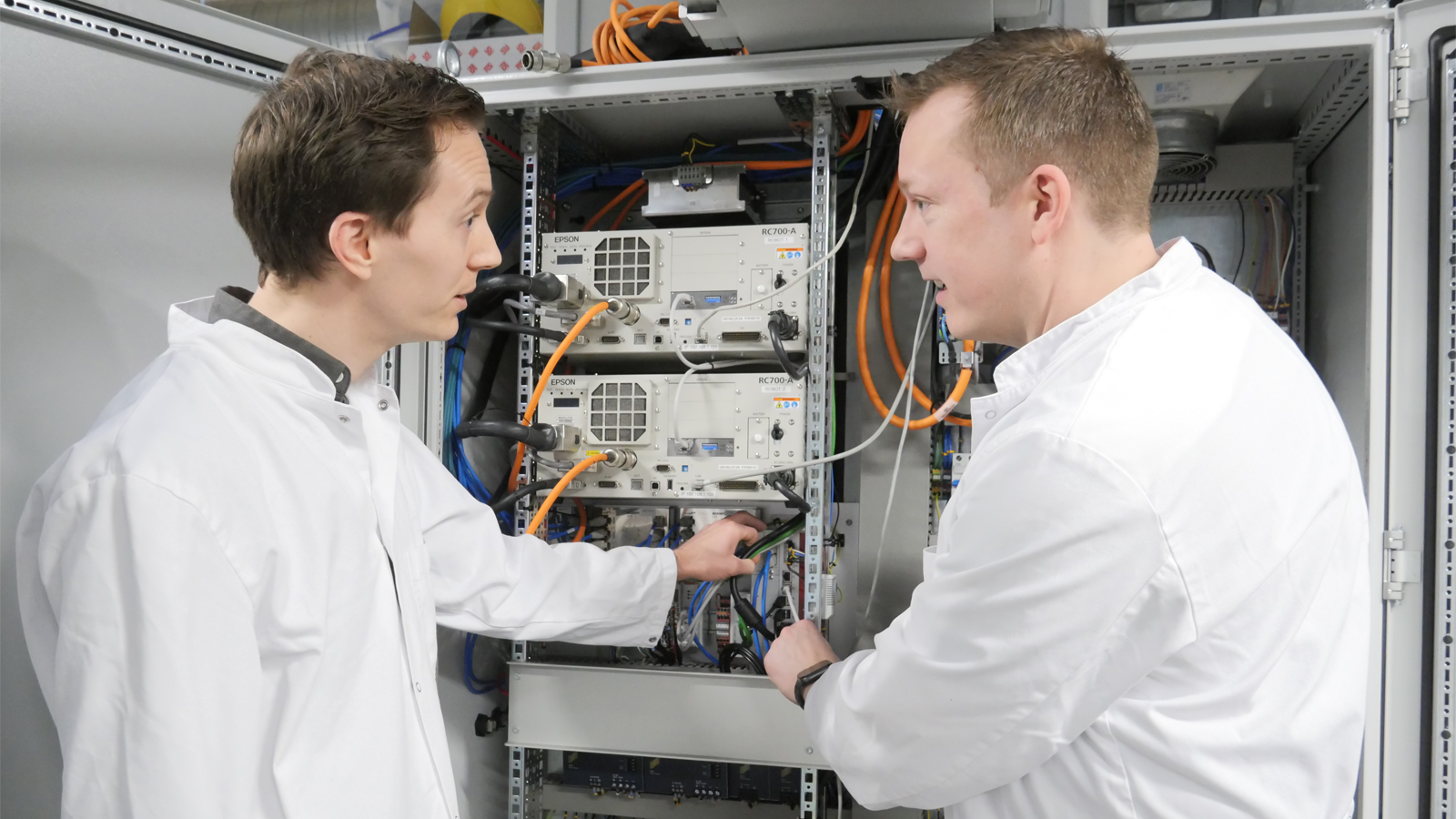

XTS increases flexibility in the packaging of dental components
Elos Medtech from Gørløse, Denmark builds its own machines for the production and packaging of dental components, and aims at standardizing automation throughout. An XTS-based blister packaging machine from 2018 demonstrates the advantages of the platform concept. After expanding the XTS linear transport system, Elos was able to easily add new machine modules for cartoning the blisters.

Elos Medtech is one of Europe’s largest and leading manufacturers in the field of orthopaedic and dental implants, headquartered in Sweden. The company employs 570 people in Sweden, China, the U.S. and Denmark and is part of the listed Elos Group. The factory in Gørløse, Denmark, specializes in the development and manufacture of dental components.
In 2018, Elos Medtech was the first company in Denmark to develop a new packaging machine based on the XTS from Beckhoff. Leveraging the flexibility of the modular transport system with the individually controllable movers, Elos was able to automate the previously manual packaging of dental components in blisters. In day-to-day operations, the fast changeover capabilities of XTS help to increase productivity and reduce resource consumption. "We need to run many different, small-volume batches every day, so the flexibility of the machine and its quick changeover capability is crucial for us. It only takes 10 to 30 min to adjust the packaging machine's setup," says Rune Callesen, head of the automation department at Elos Medtech. "This packaging machine is fully validated against the strict requirements applicable in the medical industry for a clean and dust-free environment, high precision, reliability, quality control and testing for complete traceability."

Simple machine expansion with XTS
For Elos Medtech as a machine builder, the goal is to standardize the automation of its machines across the board. According to Rune Callesen, the recently expanded packaging machine is a good example of this: "We are very far along in standardizing our automation, not least compared to the larger machine automation vendors, where this is an extensive and lengthy process. With 'Elos Medtech Modulized Automation Standard' we have created a uniform platform that includes hardware, software and networking. This means we can easily move modules and add hardware, and all cable or network connections and software interfaces are standardized. With this packaging machine, we fully applied our standard, which benefited us when we added extra modules."
With the new modules, the machine will be able to package components in both loose blisters and blisters with cardboard outer packaging and printed labels in the future. This requires an additional paper cutter in the machine, a magazine module for the carton blanks and a new printer module. Cartonpackaging will be fully introduced in the summer of 2023, and until then, packaging will continue in loose blisters. Elos has also added two vision modules that check the items being packaged as well as the placement and content of the labels. Previously, the machine contained two robots installed in the machine bed. After the expansion, the robots are mounted on rails on the ceiling of the machine cell and can move freely back and forth to free up space and to handle more tasks.

Maximum flexibility and integration capability
Rune Callesen says it inspires great confidence that the technologies on which the 2018 machine is based are so well thought out to enable long-term use. Everything is modular and reusable; everything is open and easy to use, he explains. This allowed Elos to simply add machine modules without any hassle, instead of building a whole new machine, which ensures both sustainability and investment protection.
"The open platform from Beckhoff supports our way of thinking. We can tie everything together and even integrate third-party hardware seamlessly. In doing so, we don't have to work with multiple types of automation software. That’s a big advantage for us. For example, our vision cameras and the servo euipment for the robots come from two other suppliers. It would have been more difficult for us to integrate these with automation technology from any other supplier than Beckhoff," says Rune Callesen.
He also points out that third-party software can also run on the Industrial PC without additional effort. One example is the printer, which uses specific software, yet can be installed directly. The alternative would have been to develop a complicated solution involving the transmission of print commands via the network or to use an separate PC for printer control. The network structure is also easy to work with because the EtherCAT Coupler from Beckhoff with Fast Hot Connect ports takes care of identifying the modules in the network topology if they are moved. This technology makes it easy to quickly create the correct configuration for all connected components, according to Callesen.
"The technologies just work – for us there is no real alternative to Beckhoff. In my opinion, the solutions from other suppliers don't integrate as well," says Rune Callesen, continuing, "The support is also top-notch. We have two programmers in the Danish branch and have to ensure 24-hour operation. Beckhoff always steps in quickly when needed and is also happy to share know-how and even Gray code that we can adapt ourselves. We see working with Beckhoff as a true partnership, and the many benefits for us as a company reinforce our decision to choose Beckhoff as a supplier."